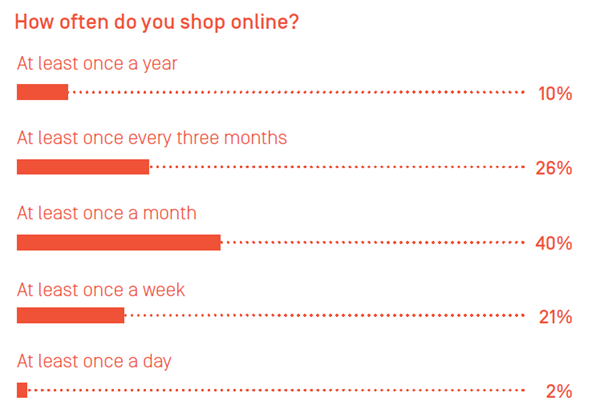Live from Vegas: Epi Rolls Out Smart Content Personalization
It's that time of year again when Episerver throws its glamorous annual user conference in Las  Vegas. My coworker Laura and I are on location right now to capture great conversations with the most innovative and talented members of the Episerver community, directly from the event floor.
Vegas. My coworker Laura and I are on location right now to capture great conversations with the most innovative and talented members of the Episerver community, directly from the event floor.
Just like the previous years, Episerver Ascend 2018 is expected to be a combination of inspirational keynotes with new announcements and well moderated interactive sessions, product demos, breakouts, and networking events. Ahead of all these exciting activities, Ascend 2018 just kicked off with the launch of Episerver Advance which helps organizations deliver individualized content to visitors everywhere that they digitally engage.
Before delving into this brand new personalization tool, as a little bit of a background, let me briefly take you back in time to give a glimpse into Episerver’s recent product development.
Since the acquisitions of Peerius, a provider of intelligent omnichannel personalization, and Optivo, a provider of omnichannel campaign management and customer intelligence solutions, Episerver has tirelessly amplified its platform. Shortly after acquiring these platforms, the vendor launched Episerver Reach, an event triggering engine, and Episerver Profile Store, a Data Management Platform (DMP).
As all these product releases helped Episerver build a solid foundation, last month, the vendor announced two new much-needed tools. The first one was Episerver Insight which is a customer journey analytics and visitor intelligence tool. As James Norwood, CMO and EVP, strategy at Episerver, explained to me via email at that time, it actually sits on top of Episerver Profile Store and mines all that Big Data to provide deep insights. The newly announced Episerver Advance, a content recommendation and sequencing tool, marks the last of the Episerver Personalization Suite products.
How Episerver Advance Helps Marketers and Merchandisers
As part of the Episerver Digital Experience Cloud, Episerver Personalization Suite is designed to draw on cognitive artificial intelligence to support unprecedented content personalization at scale. And, with the latest addition to it, the vendor aims to help marketers and merchandisers solve the modern challenge of delivering relevant content to people when and where they need it. How exactly, you may ask?
According to Episerver, its Advance product leverages cognitive artificial intelligence (AI) to apply rich metadata tags to content assets automatically, and then sequence the delivery of those assets based on deep analysis of data as well as a visitor’s real-time activity to ensure they see the best content to support their inferred intent or goals.
What is it Episerver wants to achieve with the launch of Episerver Advance? James Norwood addresses this question stating: “With the release of Episerver Advance, we are solving the last and most complex piece of the personalization puzzle and delivering on our promise to help organizations create individualized experiences for their customers and visitors wherever and whenever they engage.”
By now, we all know that machines are better than us when it comes to detecting the behavioral patterns and picking up the clues from a trail of data the visitor leaves behind. Good news, the possibilities are endless when it comes to incorporating artificial intelligence and machine learning into the content creation process. Enterprise search, advanced analytics, benchmarking, recommendation engines and personalization have been the most popular areas where machine learning capabilities are injected into.
On the retail side of things, more brands have been harnessing the technology to deliver content, increase engagement, and strengthen brand affinity for years now. Lately, almost all the sectors have also been gearing down on creating more innovative business cases where they can utilize robust AI-powered tools more. That’s why, with all the latest enhancements, Episerver seems to grow fast enough to capture this opportunity.
What I really liked about the newly announced Episerver Advance is its ability to provide personalized content to a visitor based on what stage they are at in their online journey as the vendor believes that providing a relevant experience for both first-time visitors and repeat customers can result in lower bounce rates and higher conversion rates. In fact, this is exactly where all the efforts in personalization, typically, go south. Many brands try to personalize content based on demographics instead of intention. As a result, 75% of consumers find most forms of personalization at least somewhat creepy. Unfortunately, when “personalization” veers into the “creepy” territory, it serves no one other than your competitors which provide the most optimal content at a customer-journey level.
This type of approach helps organizations build a solid foundation of brand experience. After all, “people are not willing to watch or consume a 30-second ad if they have no connection with the brand,“ as Thales Teixeira, Harvard Business School professor claims. Giant brands like GoPro and Redbull, for instance, have been taking advantage of sequential storytelling methods to build engagement deliberately. When we look at their content, they do not pitch their products directly, instead, they publish entertaining and captivating content that can resonate with their unique audience.
Like a chess grandmaster, brands have to think ahead to find out what their prospects/customers might be looking for so they can develop the right type of engagement in every step of a customer journey. For instance, if the customer has just become aware of the fact that there is an unresolved issue, a brand that prioritizes the relationship builder may provide informative, third party, and vendor-neutral content such as eBooks, White Papers, Analyst Reports, Research Reports, Expert Content, Blogs, Case Studies, or a Newsletter. That way, the brand starts off a relationship with educating the prospect, instead of pushing its product onto them.
Unfortunately, detecting those intentions is not a task that marketers could easily take on, without bringing AI technologies into the equation. Therefore, innovative technology providers like Episerver put AI-powered algorithms to work behind the scenes to analyze what the visitors are looking for in order to bring forward the best suited content, while freeing marketers from laboring over how to tag it for optimal performance or when and where to share it, so they can spend this time developing great content.
An Online Consumer Behavior 2018 Study
Episerver surveyed 4,000 global consumers and found that a large majority (87 percent) of consumers are actually willing to give up their personal information to brands if it means a better online experience. However, personalization is still an enigma for many brands, even with a rise in related strategies and technologies as well as consumers’ will to share more personal information. In fact, over a third (35 percent) reported feeling that brands simply don’t care about personalizing their online shopping experience -- indicating a disconnect between brands’ digital capabilities and modern consumer expectations.
While there are so many data goodies unveiled, here are some of the big takeaways that stood out for me:
-
Over a third of shoppers have tried emerging technology functions like smart mirrors and drone delivery, and more interestingly, nearly 90 percent of shoppers who have tried new technology functions would do so again.
-
Sixty-three percent of people shop online at least once a month, and a quarter (23 percent) shop online at least weekly.
-
Since global e-commerce sales are expected to eclipse $2.8 trillion this year, this finding came as no surprise; with almost two-thirds of shoppers expecting to make more online purchases this year than they did in 2017.
-
Not only online purchases but also connected consumers are on the rise, too. 30 percent of people browse on their smartphones daily, and half do so weekly.

"Online shopping is on the rise worldwide, and customers' expectations of what their shopping experience should feel like are evolving," said Ed Kennedy, director of digital commerce strategy at Episerver. "Brands that are willing to invest in all aspects of the online shopping experience set themselves up for long-term success, while those that focus too heavily on transactions are not accounting for shoppers' diverse expectations and needs. Offering solutions to points of friction such as delivery, gift-giving, and privacy are great ways to earn repeat customers."
Besides providing data and insights on the current issues that result in a gap between brands and consumers, the report also highlights three actionable recommendations to businesses as they transition their customers online:
-
The brands that can best satisfy shoppers’ diverse device desires position themselves to earn sales when shoppers are ready to purchase.
-
Shoppers welcome new experiences, both online and in store. They are open to more diverse interactions, and businesses can explore nascent technology functions and emerging online capabilities to impress them. However, the report suggests brands utilize these new, tech-driven experiences by complementing traditional online options and focus on improving convenience and personalization for shoppers.
-
Given that incorrect or incomplete content has dissuaded 95 percent of online shoppers from completing a purchase before, the report warns brands to make sure that their content is complete and accurate. The data furthermore reveals that when purchasing via a brand’s website/mobile app, product specifications are the most important type of content. This is followed by customer reviews and images of products in use.
Come and Say Hi to the CMS-Connected Team
Ascend USA 2018’s jam-packed agenda has something for everyone. Besides, Laura and I continue to collect epic stories and lessons learned from cross-disciplinarian practitioners such as customers, marketers, developers, business leaders, tech leaders, and e-commerce managers. If you, too, are at Episerver Ascend 2018 right now, send us an email and snag your seat to be part of our educational and entertaining interviews.
If you couldn’t make it, no worries as we are bringing so much unique content and different valuable perspectives back with us. To binge on all our content from the event, do not forget to check back to our website or social media channels.

Venus Tamturk
Venus is the Media Reporter for CMS-Connected, with one of her tasks to write thorough articles by creating the most up-to-date and engaging content using B2B digital marketing. She enjoys increasing brand equity and conversion through the strategic use of social media channels and integrated media marketing plans.